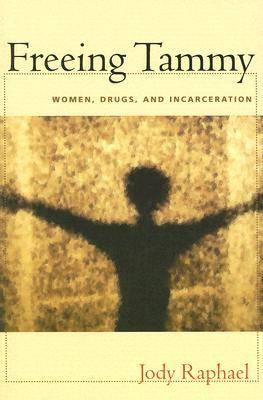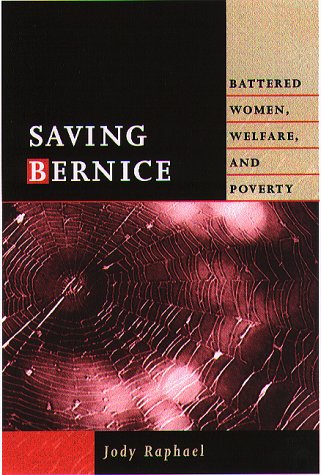Northeastern Series on Gender, Crime, and Law
2 total works
Tammara (Tammy) Johnson is an African-American woman in her fifties, an ex-addict with a 19-year heroin habit and a felony record, who works as the job development trainer for an in-patient drug treatment program in south suburban Chicago. Raised in a middle-class family, Tammy left home early because she could not live up to parental expectations. She turned to drugs and crime and was eventually incarcerated for selling drugs.
This book, the third in a trilogy about Chicago women by noted author Jody Raphael, is the story of Tammy's metamorphosis. Raphael's narrative, based on extensive interviews with Tammy and family members, shows the detrimental effects of incarceration on an already abused woman and illuminates Tammy's efforts to release herself from the literal and figurative prisons of abuse, addiction, crime, fear, and hopelessness.
Raphael uses the transit of Tammy's life-from childhood trauma to adult rehabilitation-to investigate the linkages between childhood sexual assault and domestic violence with women's drug addiction and then with crime. She uses Tammy's own words to demonstrate how childhood sexual assault and violence can make women poor and how dysfunctional coping strategies keep them poor. Tammy's story is a reminder that violence against women and girls economically impoverishes them by trapping them in addictions leading to crime and other self-destructive activities.
This book, the third in a trilogy about Chicago women by noted author Jody Raphael, is the story of Tammy's metamorphosis. Raphael's narrative, based on extensive interviews with Tammy and family members, shows the detrimental effects of incarceration on an already abused woman and illuminates Tammy's efforts to release herself from the literal and figurative prisons of abuse, addiction, crime, fear, and hopelessness.
Raphael uses the transit of Tammy's life-from childhood trauma to adult rehabilitation-to investigate the linkages between childhood sexual assault and domestic violence with women's drug addiction and then with crime. She uses Tammy's own words to demonstrate how childhood sexual assault and violence can make women poor and how dysfunctional coping strategies keep them poor. Tammy's story is a reminder that violence against women and girls economically impoverishes them by trapping them in addictions leading to crime and other self-destructive activities.
Raphael (executive director of the Center for Impact Research) describes the responses one partner of a battered woman on welfare made to the woman's efforts to obtain employment, thus illustrating some of the ways in which welfare and abuse trap battered women. She maintains that welfare debate has

